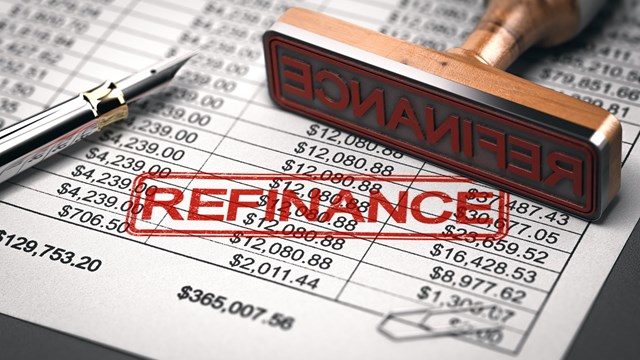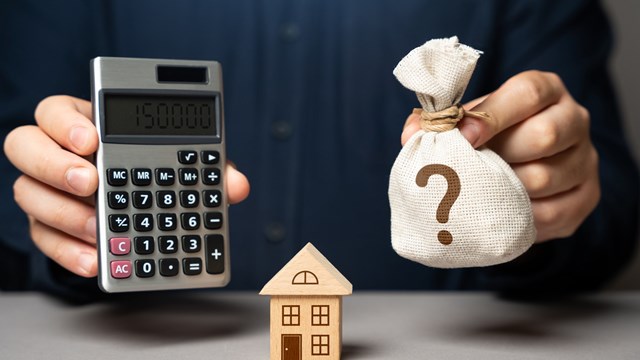Out of concern over escalating property taxes, The Action Committee for Reasonable Real Estate Taxes was formed in 1990. Created by The Council of New York Cooperatives and Condominiums (CNYC), the committee uncovered a gross disparity between the taxes paid by co-op and condo dwellers and those assessed to private homeowners and decided to do something about it.
In 1994, the Action Committee discovered that cooperatives and condominium apartments in buildings containing more than three units were paying three to five times more property tax than single-family homes of comparable value. Co-ops and condos were being taxed as Class Two income-producing properties, rather than as the single-family homes that most of them were, simply because they happened to be apartments in large buildings. The Committee began a successful lobbying campaign to equalize co-op and condo real property taxes.
Inspired by The Action Committee and backed by Mayor Giuliani and the City Council, the state legislature passed a bill introduced by assembly member Pete Grannis that provided partial abatements for fiscal years 1997 through 1999. This was intended as a stopgap measure until a more complete reform of the tax law could be drafted and implemented. The temporary abatement proposal mandated that a plan to definitively address the disparity be submitted by the City to the state Legislature by December of 1996. Such a plan was never submitted, however, so an amendment was passed to extend the deadline–as well as the partial abatement program–for two more years. The program was renewed again, but the sun set on that tax-abatement bill incarnation on June 30, 2001. A long-term plan to restructure the real estate tax laws has still not been submitted, however; an amendment to extend the program once again has been passed by the state legislature and is expected to be signed by Governor Pataki. With what looks like an indefinite cycle of renewal and no concrete, long-term abatement plan on the table, a shareholder or board member might well wonder about the prospects for future tax fairness for themselves and their buildings.
The Initial Inequity
Elliot Meisel, of Manhattan law firm Brill & Meisel, specializes in cooperative and condominium practice and associated tax certiorari work and describes the situation pre-abatement: "These buildings are multiple dwellings containing numerous residents in a relatively compact area, and generally require fewer city services than private homes, yet were paying disproportionately high real estate taxes. But the number of private homeowners far exceeds the number of co-op and condo owners, so from a political point of view, the co-op and condo owners had less leverage. The real estate tax law is very complicated and convoluted, and tax law is a state law. Most of the co-ops and condos are in New York City, so it’s always been a real difficulty for the political leaders who represent co-op and condo owners as part of their constituency to influence a change." Once the degree of inequity was brought to light in 1994, however, and the City of New York acknowledged that homeowners in housing cooperatives and condominiums paid far more than their fair share of property taxes, there seems to have been little disagreement that the situation should be righted.
Abatements as Partial Solution
The past amendment, as well as the one expected to continue through fiscal year 2003, grants a 25 percent reduction in taxes to owners of apartments in buildings where the average assessed value per unit is $15,000 or less and a 17.5 percent reduction to owners of units in buildings with an average assessed value of more than $15,000. To be eligible for a rebate, Meisel explains, the unit must be one’s primary residence, and one must own no more than three units.
According to the City Council, the abatement redresses about one-half of the inequity in the tax burden between the two classes of residential property. To further correct the problem, it proposes deepening the abatement from 25 percent to 40 percent for units with assessed values of $15,000 or less, and from 17.5 percent to 20 percent for units more than $15,000.
Meisel says that it’s not generally individual shareholders or owners who apply for rebates, but rather the corporation or condominium’s tax certiorari attorney or managing agent. It is up to them to refund the appropriate amount to individual shareholders or owners. Rather than issue checks to each shareholder, a co-op or condo may simplify things by assessing for extra projects or expenses, like facade repair or unusually high fuel costs, and simply putting the refunds toward that-or they might credit shareholders for that amount of maintenance charges.
Equity vs. Revenue
For now, at least, it appears that the long-term plan will be to continue renewing the short-term plan. Last fall, New York City finance commissioner Andrew S. Eristoff addressed the issue in a letter to Senate Majority Leader Joseph L. Bruno and Assembly Speaker Sheldon Silver advising that the "present plan and recommendation of City of New York is to continue the current real property tax abatement program for cooperatives and condominiums."
As for creating complete and permanent tax fairness, the challenge seems to lie in making up the revenue that would inevitably be lost. According to Eristoff, "The Department of Finance has performed a statistical analysis that substantiates the continuing existence of a disparity between Class One and Two. It is estimated that the cost to eliminate the disparity is an additional $180 million. While the City recognizes a disparity still exists, the recent loss of $550 million in annual revenue from the former nonresident earnings tax (the "Commuter Tax") and other unilateral State actions have made additional tax benefits impossible. Furthermore, the City’s current share of State School Tax Relief (STAR) program funds is some $400 million less than would be forthcoming under an equitable apportionment formula. In light of these circumstances, it would be irresponsible and unfair to ask City taxpayers, who already carry the current abatement program, to bear the full burden of eliminating any remaining disparity. We therefore have no choice but to continue our significant commitment to the current abatement program. Of course, if in the future the State allocates additional resources, perhaps by adopting a more equitable STAR apportionment formula, the City will be prepared to offer detailed recommendations for implementing a broad-based reform program."
Mary Ann Rothman, the executive director of the Council of New York Cooperatives & Condominiums, puts this in perspective. "Giuliani is going out of office without a permanent plan in place. But Mr. Giuliani’s administration has given us five years of property tax abatement, so it’s hard to complain about that. I’m one of probably a very few people who have an inkling of the infinite complexity of this. It really was an enormous task, getting all the data they have on various co-ops, making sure we get the abatements down to the penny in exactly the right form. It had to be a pretty daunting thing in the last year of an administration to think about reworking the system and putting the long-term plan in place. So we’ll hit the new administration while it’s young, with many years to go, and we’ll hope we get the details ironed out. Yes, the loss of the commuter tax bit an enormous hole in the city budget and we’re just lucky that Wall Street has continued to do as well as it has. The current elected officials absolutely understand how important co-ops and condos are in this city and how important it is to treat us fairly."
So the good news is the current abatement is not likely to go away. And the other, possibly less-good news is, it will apparently be some time before complete equity is achieved -if it ever is. The City’s loss of revenue through the abolishment of the Commuter Tax and through its share of the STAR program make further abatements look less than feasible at the moment. Meisel believes, too, that the complexity of the regulations that must be complied with -as well as a lack of political willpower-are factors. For now, at least, it appears that great force of will, along with some creative political thinking, must be forthcoming before cooperative and condominium owners will be able to benefit from true tax fairness.
Ms. Goodman is a freelance writer living in Westchester.







Leave a Comment